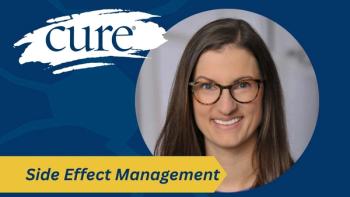
- November 2014
What are long-term and late effects?
The vision that oncology professionals have for their patients after treatment is that they enjoy long, healthy lives both mentally and physically.
The vision that oncology professionals have for their patients after treatment is that they enjoy long, healthy lives both mentally and physically. For the vast majority of cancer survivors, this is their future.
Unfortunately, that is not the case for a percentage of survivors who will have some degree of long-term or late effects as a result of their cancer treatment—effects that could impact the quality or length of their remaining life.
A survivor who develops a side effect during treatment that does not resolve when treatment ends is experiencing a long-term effect. For example, a number of drugs can cause peripheral neuropathy, although it is often the result of drugs in the platinum or taxane classes, as well as certain immunomodulating drugs. As with many side effects, neuropathy is dose-dependent, meaning it worsens as more of the drug is given to the patient. Chronic pain, such as neuropathy, can greatly impact a survivor’s quality of life and possibly lead to depression and fatigue.
Both chemotherapy and radiation can cause fatigue, diminished cognitive function and insomnia. Survivors may also experience changes in hormone levels that result in mood swings, alterations in behavior, premature menopause or infertility. During a survivorship care plan discussion, each aspect of treatment should be looked at in detail, including surgery, radiation and chemotherapy. Survivors should be encouraged to ask questions about the longterm effects connected to every aspect of their treatment.
For survivors with ongoing, long-term side effects, the discussion aspect of the SCP becomes increasingly important because they might not mention a side effect to their oncologist, thinking it is a normal part of their healing process or something they have to endure.
If a side effect appears for the first time months or years after a patient has finished treatment, it is considered a late effect. For example, the survivor who moves on after treatment to live well and healthily only to develop a treatment-related cardiac problem 15 years after therapy is experiencing a late effect of cancer treatment.
During the SCP discussion, it can be difficult to get the survivor to focus on something that may or may not happen 10 or 15 years in the future; survivors may be more concerned about recurrence or coping with ongoing pain or financial issues. And yet, building an awareness of potential late effects is important so that survivors understand the need for follow-up with their primary care physician (PCP) or oncologist.
Articles in this issue
over 11 years ago
What are examples of effects caused by treatment?over 11 years ago
What are ways to ease long-term and late effects?over 11 years ago
How prevalent are long-term and late effects in survivors?


